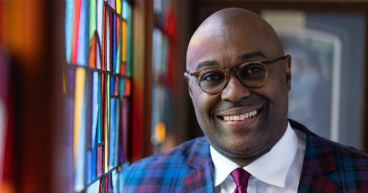
A host of health benefits may come with forgiving someone who’s hurt you, or forgiving yourself if you’ve hurt someone else. Moving on from a painful situation frees your mind and may heal your heart, literally and figuratively. For cancer patients, forgiveness “presents an opportunity to take stock of your life and determine what’s truly important to you. This life-changing disease gives you the opportunity to reflect and reconsider your journey to this moment,” says Lynn Bornfriend, MD, a Psychiatrist at Cancer Treatment Centers of America (CTCA) Philadelphia.
Research shows that people who forgive are more likely to have higher self-esteem, lower blood pressure, fewer stress-related health issues, better immune system function and lower rates of heart disease, among other health benefits. But getting to a place where you are ready to forgive may sometimes seem impossible. Indeed, forgiveness takes a lot of work. You just have to be willing to do that work.
Forgiveness is a personal decision to let go of the feeling of being wronged and move on. It means that wrongdoing does not influence your actions and responses, as well as the way you look at the world. “Forgiveness does not mean forgetting or accepting that what happened was okay,” says Bornfriend,
If you’ve found it difficult to get past being hurt by someone you love, think about the positive impact of forgiveness and the negative effects of holding a grudge. Dr. Bornfriend offers the following steps as a guide to forgiving:
Identify the issue: Look at the question of “What’s the problem?” from all angles. Consider why the person who wronged you acted that way. Also, what was your own role in the situation and what could you have done differently to have created a more positive outcome? “A lot of times, people just don’t know these answers,” says Dr. Bornfriend. “They simply say the other person was bad to them. We have to assign facts to these feelings.”
Recognize the impact of your own behavioral patterns: Do you push people away because you can’t move beyond your own feelings of hurt, betrayal or injustice? Do you have a quick temper? If you answer yes to both questions you may be hurting the people you love. As a consequence of your own behavioral patterns, you may be damaging the relationships you have with the people you love.
Think about what you really want in a relationship: For cancer patients, having this disease offers the chance to reprioritize your life and recategorize relationships you once viewed negatively. Dr. Bornfriend poses these questions: What are you looking for in your relationships? How do you get there? “That’s the hard part,” she says. “You have to acknowledge your own role in making your relationships better now that you’ve identified what you want.”
Identify the cost of choosing not to forgive: What is the impact on your own life of continuing to dwell on feeling hurt by a person who wronged you? Research suggests that holding a grudge affects your cardiovascular and nervous system. Thinking about being wronged can increase your heart rate, blood pressure and muscle tension. You may feel like you don’t have control. Forgiveness can reverse these effects.
Take steps to forgive: Thoughts that reinforce negative thinking or emotions, such as holding onto a past hurt, stall the process of forgiveness. Once you can identify your own negative thoughts when they’re happening, then you’re ready to work on forgiving. “We tell ourselves things that sound rational and accurate but they really only serve to keep us feeling bad about ourselves,” she says. For example, a victim of abuse might interpret any disagreement or conflict as another episode of abuse or rejection. Awareness of your own thought process allows you to take a step back so you’re able to forgive and achieve the sense of freedom that comes with it.
There’s no set timeline for how long the process of forgiveness should take. Some steps take longer than others, and it might take several attempts to complete one or more steps. Bornfriend says, “It depends on the individual. It’s important that we see the value and meaning in each step. There’s always room to change. No matter how small the change is, it can be the beginning of something good.”
Also keep in mind that those who forgive are more likely to be happy, serene, empathetic, hopeful and agreeable. Forgiveness can even lead to feelings of understanding, empathy and compassion for the one who hurt you.
The Rev. Percy McCray, Director of Faith-Based Programs at Cancer Treatment Centers of America® (CTCA), suggests people of faith remember that there is a spiritual pathway and benefit to forgiveness. “The Holy scriptures tells us that there is personal value in forgiving others because we all have been granted unconditional love and forgiveness by God himself,” Rev. McCray says. “Forgiveness is indeed the healing balm for our souls, minds, and emotions. We should apply it liberally to ourselves first and then certainly to others."
Learn about coping with mental health challenges after a cancer diagnosis.



